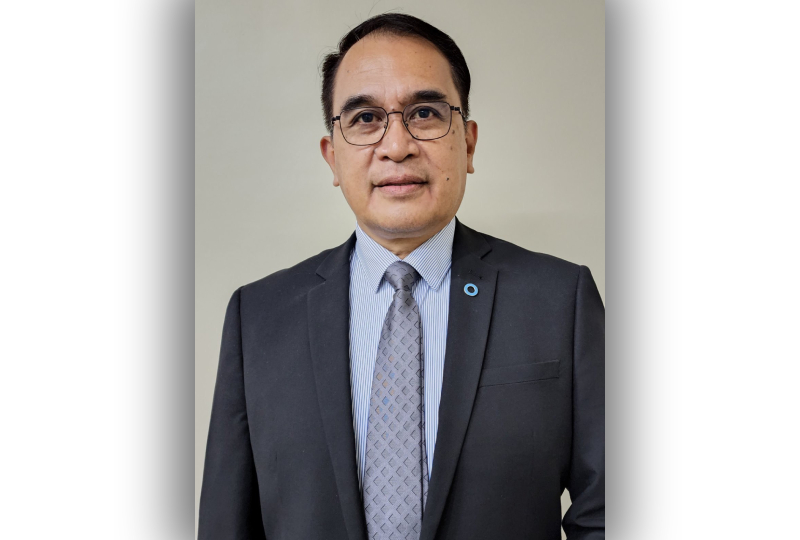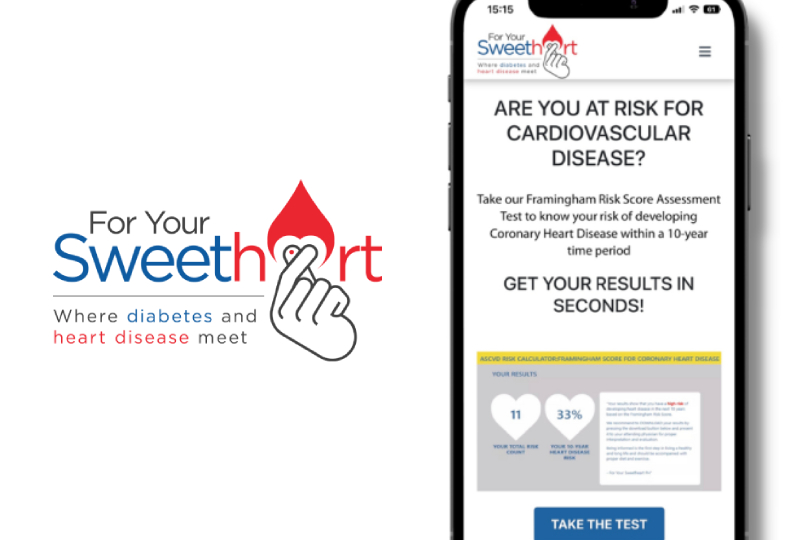Not-so-merry holidays: Why healthcare professionals call October to January 'problematic months'

MANILA, Philippines — The long Christmas season is in full swing in the Philippines. Coincidentally, World Diabetes Day, November 14, falls right smack in the middle of it.
Local healthcare professionals call the months between October and January “uncontrolled diabetes season“ because of the spike in admission cases of uncontrolled diabetes that resulted from too much eating, drinking and partying.
“These are problematic months,” says Dr. Francis Pasaporte, president of Diabetes Philippines, one of the organizations of medical professionals supporting For Your SweetHeart, a nationwide movement that aims to raise awareness about the critical link between diabetes and heart disease.
Diabetes is not just about sugar. Dr. Pasaporte says it's also about inflammation. “With inflammation, cholesterol becomes sticky, causing it to cling to the inner walls of the blood vessels. Cholesterol will eventually thicken and harden, obstructing blood flow and causing complications. Smoking and fatty foods are considered common causes and aggravators of inflammation.”
Dr. Pasaporte adds that “the heart and the kidney are interconnected.” Diabetes can cause both organs to fail. When the kidney fails due to diabetes, the heart will eventually follow, and vice versa.
Tip of the iceberg

Dr. Francis Pasaporte, President of Diabetes Philippines. MPR-PH-100335. November 2022.
Based on the latest data from the Food and Nutrition Research Institute (FNRI), a government agency tasked to monitor the number of Filipinos with diabetes aged 20 and above, the prevalence of diabetes in the Philippines rose to 7.9% in 2018.
The FNRI gathers data every five years and shares the information with various organizations. When FNRI began its work in 2003, diabetes prevalence in the country was only 3.4% compared to 4.8% and 5.6% in 2008 and 2013 respectively.
The FNRI is set to release its next data in 2023 and Dr. Pasaporte's team projects prevalence will grow to around more than 10%.
"It's actually a conservative estimate because if we go by the natural history of diabetes, half of that is still undiagnosed. The number merely represents those who were caught or diagnosed with diagnostic tests," Dr. Pasaporte explains.
"The number is really just the tip of the iceberg."
No to sugarcoating
When it comes to educating people about diabetes, Dr. Pasaporte, like many medical professionals, says "don't sugarcoat the disease."
"We have to be very upfront with our patients so they'd know how severe the disease is. It will keep them from saying 'Ah, sugar lang yan. Wala pa naman akong nararamdaman. Magda-diet lang ako.' Sometimes it's difficult to treat a diabetic person who shows no symptoms except a high blood sugar level," he says.

However, many are unaware that diabetes is asymptomatic at its early stage. This means patients wouldn't feel any symptoms until their bodies can no longer cope with the elevated sugar inside their bodies.
Once this happens, they will begin to experience fatigue, excessive thirst, and increased urination.
"When our body reaches a certain threshold, it becomes sensitive to the sugar it could no longer control. This results in all sorts of problems, including causing metabolism to develop difficulty in processing fats and cholesterol, and impairing brain function," he explains.
For this reason, Dr. Pasaporte underscores the importance of getting annual check-ups — males starting from age 30 and females from age 35.
Controlling diabetes
Dr. Pasaporte began a program in his clinic 15 years ago that educates patients on how they can have "very good control of their diabetes" during the holiday season.
He noticed that since he instituted the program, the number of patients rushing to his clinic due to elevated blood sugar levels dropped drastically by the end of December or January.
"That's the behavior I want diabetes patients to develop," he says. "Before the holidays, they should be in control because diabetes is a controllable condition. By October, when they come for a check-up, their lab results and blood pressure should be on target."
To celebrate World Diabetes Day on November 14, Diabetes Philippines already began hyping a few months back the event messaging of its global partner International Diabetes Foundation — "Education to protect." The messaging, which will run until next year, will be communicated to the Department of Health, Department of Education and other organizations.
A quick and easy heart test
For its part, For Your SweetHeart has been very active in advocating a healthier lifestyle. This includes a heavy information and education campaign about the silent but critical link between diabetes and heart disease.

The Framingham Assessment Test. Take the test at For Your SweetHeart website: https://foryoursweetheart.ph/framingham-risk-score-assessment/
The goal is for people to be proactive in managing their risks of developing the illness. For this purpose, it has re-introduced an easy and quick online tool that people can use to determine their risk of developing coronary heart disease that may cause heart attacks and other heart ailments within ten years.
Called the Framingham Assessment Test, the self-administered web-based test uses current health status including cholesterol levels and blood pressure to calculate the user’s risks. Anyone from 30 to 74 years old without any history of heart problems can take the test at the For Your SweetHeart website.
For Your Sweetheart is also supported by Boehringer Ingelheim, Philippine Heart Association, Philippine College of Endocrinology Diabetes and Metabolism, Alliance of Clinical Endocrinologists, Institute for Studies on Diabetes Foundation, Inc., Philippine Alliance of Diabetes Educators and Philippine Alliance of Patient Organizations.
MPR-PH-100335. November 2022.




















